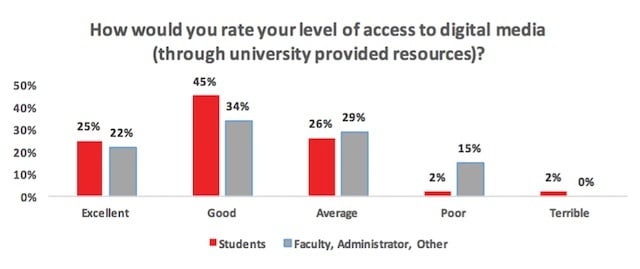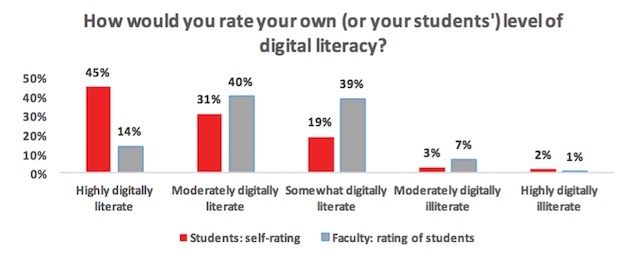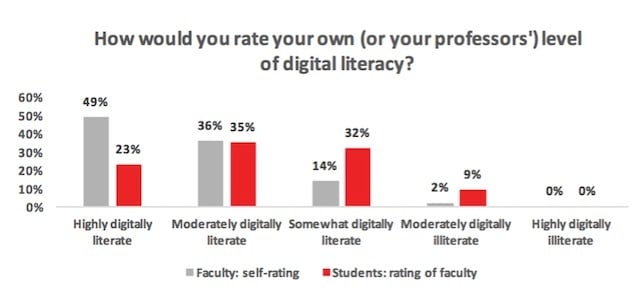Searching for "gen z"
Here’s one thing Google and Microsoft agree on (and they’re right)
http://www.businessinsider.com/google-and-microsoft-embrace-ar-over-vr-2016-4
Virtual reality, like the new Facebook Oculus and HTC Vive, completely immerse you inside a computer generated world. It’s like being inside a 360-degree video game, or movie, or computer-generated simulation.
according to a report in The Information today, Google’s long-term bet is on augmented reality. The company is making not one but several follow-ups to Glass, and has a project called “Tango” that aims to outfit smartphones with computerized “eyes” that can map a 3D space.
More on augmented reality in this IMS blog
https://blog.stcloudstate.edu/ims/?s=augmented&submit=Search
game consoles in the library
from the LITA listserv:
Hi LITA,
Do any of you have game consoles in your libraries?
We currently offer PS3 and xBox but recognize there’s a whole new generation available.
Our issue is that xBox1 works best connected to the Internet. This allows full game play but opens up some issues in a library environment. Is anyone already offering these? How do you deal with patrons logging into their personal accounts on the consoles and perhaps forgetting to log our therefore leaving them exposed? These accounts store credit card info and game winnings. What’s a library to do?
Thank you,
Madeleine Sturmer
IT Manager
Teton County Library
(307) 733-2164 x143
IT Dept x192
+++++++++++++++++++++
College Gamers Battle for Scholarships
By Dian Schaffhauser 04/04/16
https://campustechnology.com/articles/2016/04/04/college-gamers-battle-for-scholarships.aspx
++++++++++++++++++++++++++++++++++
More about games and gamification in the library in this IMS blog:
https://blog.stcloudstate.edu/ims/?s=games&submit=Search
Immersive Italy and 6th European Immersive Education Summit Host and Dates Announced
http://immersiveeducation.org/news/2016/02/03/immersive-italy-and-6th-european-immersive-education-summit-host-and-dates-announced
The Immersive Education Initiative today announced that Università degli Studi di Padova (the University of Padua) is the official host of the 6th European Immersive Education Summit (EiED 2016). The prestigious academic and technical conference will run in parallel with the inaugural IMMERSIVE ITALY “general public” conference from June 21 through June 23.
More on immersive practices in this IMS blog:
https://blog.stcloudstate.edu/ims/?s=immersive&submit=Search
The 2016 State of Digital Media in Higher Education [Report]
Digital Literacy: Students and faculty disagree when evaluating their own
digital literacy competency vs. each other’s



NISO Virtual Conference:
Justifying the Library: Using Assessment to Justify Library Investments
April 20, 11:00am – 5:00pm EST – Learn more and register at: http://www.niso.org/news/events/2016/virtual_conference/apr20_virtualconf/
Assessment exercises for institutional libraries are frequently a double-edged sword; they’re as readily used to justify cuts as they are to bolster budgets. This NISO virtual conference provides expert insights into how data gathered in the normal course of activities can be leveraged to demonstrate value to the parent institution. Data represent the raw material for building your case. What data are available? How is their quality? What is the appropriate context for persuasively presenting that data to deans, provosts and other administrators? This virtual conference will address the very hot topic of library assessment in the context of a changing educational environment and features a complete roster of expert speakers, including:
- Steven J. Bell, Associate University Librarian, Temple University
- Nancy Turner, Assessment and Organizational Performance Librarian, Temple University
- Jocelyn Wilk, University Archivist, Columbia University
- Elisabeth Brown, Director of Assessment & Scholarly Communications Librarian, SUNY-Binghamton
- Ken Varnum, Senior Program Manager for Discovery, Delivery, & Learning Analytics, University of Michigan
- Jan Fransen, Service Lead for Researcher and Discovery Systems, University of Minnesota
- Kristi Holmes, Directer, Galter Health Sciences Library, Northwestern University
- Starr Hoffman, Head, Planning & Assessment, University of Nevada – Las Vegas
- Carl Grant, Chief Technology Officer and Associate University Librarian for Knowledge Services, University of Oklahoma
The preliminary agenda and pricing information for this event may be found at:
http://www.niso.org/news/events/2016/virtual_conference/apr20_virtualconf/
As a bonus, register for the virtual conference and receive an automatic registration for the follow-up training webinar, Making Assessment Work: Using ORCIDS to Improve Your Institutional Assessments, on Thursday, April 28!
http://www.niso.org/news/events/2016/training_thursday/apr28_tt/
Instructors for that session are Alice Meadows (ORCID), Christopher Erdmann (Harvard University) and Merle Rosenzweig (University of Michigan).
For more information about this event, please contact Jill O’Neill (joneill@niso.org).
Other questions for NISO? Get in touch at:
NISO
3600 Clipper Mill Road
Suite 302
Baltimore, MD 21211-1948
Phone: +1.301.654.2512
Email: nisohq@niso.org
More on assessment in this IMS blog:
analytics in education
presented at D2L ignite April 15, 2016
ACRL e-Learning webcast series: Learning Analytics – Strategies for Optimizing Student Data on Your Campus
This three-part webinar series, co-sponsored by the ACRL Value of Academic Libraries Committee, the Student Learning and Information Committee, and the ACRL Instruction Section, will explore the advantages and opportunities of learning analytics as a tool which uses student data to demonstrate library impact and to identify learning weaknesses. How can librarians initiate learning analytics initiatives on their campuses and contribute to existing collaborations? The first webinar will provide an introduction to learning analytics and an overview of important issues. The second will focus on privacy issues and other ethical considerations as well as responsible practice, and the third will include a panel of librarians who are successfully using learning analytics on their campuses.
Webcast One: Learning Analytics and the Academic Library: The State of the Art and the Art of Connecting the Library with Campus Initiatives
March 29, 2016
Learning analytics are used nationwide to augment student success initiatives as well as bolster other institutional priorities. As a key aspect of educational reform and institutional improvement, learning analytics are essential to defining the value of higher education, and academic librarians can be both of great service to and well served by institutional learning analytics teams. In addition, librarians who seek to demonstrate, articulate, and grow the value of academic libraries should become more aware of how they can dovetail their efforts with institutional learning analytics projects. However, all too often, academic librarians are not asked to be part of initial learning analytics teams on their campuses, despite the benefits of library inclusion in these efforts. Librarians can counteract this trend by being conversant in learning analytics goals, advantages/disadvantages, and challenges as well as aware of existing examples of library successes in learning analytics projects.
Learn about the state of the art in learning analytics in higher education with an emphasis on 1) current models, 2) best practices, 3) ethics, privacy, and other difficult issues. The webcast will also focus on current academic library projects and successes in gaining access to and inclusion in learning analytics initiatives on their campus. Benefit from the inclusion of a “short list” of must-read resources as well as a clearly defined list of ways in which librarians can leverage their skills to be both contributing members of learning analytics teams, suitable for use in advocating on their campuses.
my notes:
open academic analytics initiative
https://confluence.sakaiproject.org/pages/viewpage.action?pageId=75671025
where data comes from:
- students information systems (SIS)
- LMS
- Publishers
- Clickers
- Video streaming and web conferencing
- Surveys
- Co-curricular and extra-curricular involvement
D2L degree compass
Predictive Analytics Reportitng PAR – was open, but just bought by Hobsons (https://www.hobsons.com/)
Learning Analytics
IMS Caliper Enabled Services. the way to connect the library in the campus analytics https://www.imsglobal.org/activity/caliperram
student’s opinion of this process
benefits: self-assessment, personal learning, empwerment
analytics and data privacy – students are OK with harvesting the data (only 6% not happy)
8 in 10 are interested in personal dashboard, which will help them perform
Big Mother vs Big Brother: creepy vs helpful. tracking classes, helpful, out of class (where on campus, social media etc) is creepy. 87% see that having access to their data is positive
librarians:
recognize metrics, assessment, analytics, data. visualization, data literacy, data science, interpretation
INSTRUCTION DEPARTMENT – N.B.
determine who is the key leader: director of institutional research, president, CIO
who does analyics services: institutional research, information technology, dedicated center
analytic maturity: data drivin, decision making culture; senior leadership commitment,; policy supporting (data ollection, accsess, use): data efficacy; investment and resourcefs; staffing; technical infrastrcture; information technology interaction
student success maturity: senior leader commited; fudning of student success efforts; mechanism for making student success decisions; interdepart collaboration; undrestanding of students success goals; advising and student support ability; policies; information systems
developing learning analytics strategy
understand institutional challenges; identify stakeholders; identify inhibitors/challenges; consider tools; scan the environment and see what other done; develop a plan; communicate the plan to stakeholders; start small and build
ways librarians can help
idenfify institu partners; be the partners; hone relevant learning analytics; participate in institutional analytics; identify questions and problems; access and work to improve institu culture; volunteer to be early adopters;
questions to ask: environmental scanning
do we have a learning analytics system? does our culture support? leaders present? stakeholders need to know?
questions to ask: Data
questions to ask: Library role
learning analytics & the academic library: the state of the art of connecting the library with campus initiatives
questions:

literature
causation versus correlation studies. speakers claims that it is difficult to establish causation argument. institutions try to predict as accurately as possible via correlation, versus “if you do that it will happen what.”
++++++++++++
More on analytics in this blog:
https://blog.stcloudstate.edu/ims/?s=analytics&submit=Search
New technologies for knowledge sharing
https://fcw.com/blogs/lectern/2016/03/kelman-social-intranets.aspx
Steve Kelman Mar 28, 2016 at 4:38 PM
Ines Mergel report from the IBM Center for the Business of Government, called The Social Intranet: Insights on Managing and Sharing Knowledge Internally.
co-locating subject-matter experts
traditional technologies have important limitations
when teaching about efforts many agencies are making to break down functional stovepipes, which often involves having functional experts spend significant time in offsite cross-agency teams with “functionals” from other specialties. This has a number of advantages, but creates risks that employees won’t have anywhere to go to get answers to questions or refresh their knowledge base. My students and I also discussed communities of practice, which allowed employees to ask questions to fellow experts not at the same location.
“social intranet” — a one-stop shop where agency employees can go to find or request information in a number of different ways to help them do their jobs. The social intranet consists of wikis; places for people to go to ask questions or solicit collaboration; publicly available conversation threads; central places for blogs; and opportunities for people to create profiles and (in a professional context) “friend” each other. These elements all appear at one web address, with its common home page, to which an employee can link.
These different features work in different ways. Wikis, for example, allow a group of employees to add knowledge to a text that is then accessible to the whole organization — and to which everyone can edit and add. Other employees can subscribe to the updates. Blogs, on the other hand, allow longer text to provide project updates, comment on industry developments, or introduce new issues more transparently than blast e-mail updates can manage.
Most intranet collaboration platforms do not require an approval chain to publish, which lowers the barriers to quick sharing. And while the personal profiles and “friending” often start by providing occasions for social conversations, the intention is for these to be a gateway to knowledge sharing; Mergel quotes a manager as saying, “The social feeds into the professional.”
Universal Design for Libraries and Librarians
Instructors: Jessica Olin, Director of the Library, Robert H. Parker Library, Wesley College; and Holly Mabry, Digital Services Librarian, Gardner-Webb University
Offered: April 11 – May 27, 2016
A Moodle based web course with asynchronous weekly content lessons, tutorials, assignments, and groups discussion.
Register Online, page arranged by session date (login required)
Universal Design is the idea of designing products, places, and experiences to make them accessible to as broad a spectrum of people as possible, without requiring special modifications or adaptations. This course will present an overview of universal design as a historical movement, as a philosophy, and as an applicable set of tools. Students will learn about the diversity of experiences and capabilities that people have, including disabilities (e.g. physical, learning, cognitive, resulting from age and/or accident), cultural backgrounds, and other abilities. The class will also give students the opportunity to redesign specific products or environments to make them more universally accessible and usable.
Takeaways
By the end of this class, students will be able to…
- Articulate the ethical, philosophical, and practical aspects of Universal Design as a method and movement – both in general and as it relates to their specific work and life circumstances
- Demonstrate the specific pedagogical, ethical, and customer service benefits of using Universal Design principles to develop and recreate library spaces and services in order to make them more broadly accessible
- Integrate the ideals and practicalities of Universal Design into library spaces and services via a continuous critique and evaluation cycle
Here’s the Course Page
Jessica Olin is the Director of the Library, Robert H. Parker Library, Wesley College. Ms. Olin received her MLIS from Simmons College in 2003 and an MAEd, with a concentration in Adult Education, from Touro University International. Her first position in higher education was at Landmark College, a college that is specifically geared to meeting the unique needs of people with learning differences. While at Landmark, Ms. Olin learned about the ethical, theoretical, and practical aspects of universal design. She has since taught an undergraduate course for both the education and the entrepreneurship departments at Hiram College on the subject.
Holly Mabry received her MLIS from UNC-Greensboro in 2009. She is currently the Digital Services Librarian at Gardner-Webb University where she manages the university’s institutional repository, and teaches the library’s for-credit online research skills course. She also works for an international virtual reference service called Chatstaff. Since finishing her MLIS, she has done several presentations at local and national library conferences on implementing universal design in libraries with a focus on accessibility for patrons with disabilities.
Dates:
February 29 – March 31, 2016
Costs:
- LITA Member: $135
- ALA Member: $195
- Non-member: $260
Technical Requirements:
Moodle login info will be sent to registrants the week prior to the start date. The Moodle-developed course site will include weekly new content lessons and is composed of self-paced modules with facilitated interaction led by the instructor. Students regularly use the forum and chat room functions to facilitate their class participation. The course web site will be open for 1 week prior to the start date for students to have access to Moodle instructions and set their browser correctly. The course site will remain open for 90 days after the end date for students to refer back to course material.
Registration Information:
Register Online, page arranged by session date (login required)
OR
Mail or fax form to ALA Registration
OR
call 1-800-545-2433 and press 5
OR
email registration@ala.org
High Schools Experiment With Snapchat to Reach Teens
http://www.usnews.com/education/blogs/high-school-notes/2016/03/14/high-schools-experiment-with-snapchat-to-reach-teens
My note: the US News and World Report is behind times on its reporting, unless this article has been held for a while by their editor: teenagers moved from Snapchat as quickly as they moved away from Facebook to Twitter and from Twitter to Snapchat. The generation, which is running US News and World Report is way too slow to notice the nomadic social media moves of the Millennials.
Here is the January 2016, exchange among faculty on the blend/online education listserv, which could’ve helped the author, Alexandra Pannoni line up with the times:
https://blog.stcloudstate.edu/ims/2016/01/11/social-network-highered/
The cited case from Nebraska, Katelyn Gilroy, a library media specialist, who is using Snapchat or school purposes, can undoubtedly have a niche in education, enticing students to learn about their library, reading, etc.
However, it is questionable to present the media specialist’s case from Nebraska as a blank statement; a case, which can be adopted nationwide. Ms. Pannoni fails to mention that since 15 years ago, when instant messaging was the “snapchat” of the times, U.S. students consider these applications their “virtual mall,” where they like to hang out, but are not keen to consider them for educational purposes. In the same fashion, U.S. students are somehow unique in considering Facebook, later Twitter, then Snapchat and now Kik, Yammer, Celly, or Elgg a domain reserved for their private, extracurricular activities.
More about use of social media in education in this IMS blog:
https://blog.stcloudstate.edu/ims/?s=social+media+education&submit=Search




